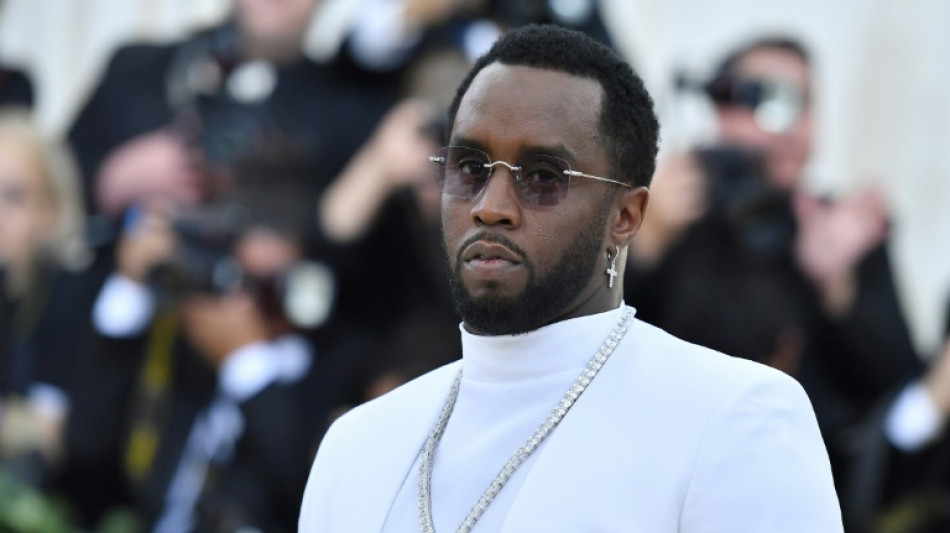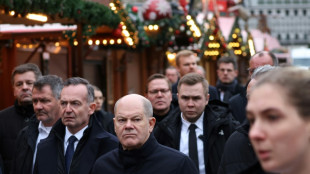

Once pop culture's party boy, Diddy sits behind bars pending trial
For decades, Diddy and his myriad aliases loomed large in pop culture as an impeccably dressed rap magnate who reigned over lavish parties and media boardrooms with class and confidence.
Tuesday threw his remarkable fall into stark relief: the artist born Sean Combs appeared on the 26th floor of Manhattan federal court in a t-shirt and sweatpants, looking underslept as he was denied bail on sex abuse and conspiracy charges that could send him to prison for life.
Prosecutors say the 54-year-old was the don of a criminal enterprise that ensnared women and forced them to commit sex acts under the threat of violence, financial insecurity and reputational ruin.
The highly publicized proceedings on Tuesday began with a swift "not guilty" plea from Combs, who sat solemnly between his lawyers as at least a half-dozen family members and other entourage members watched from the packed courtroom.
But the detention hearing that followed his arraignment lasted well over an hour and offered a glimpse into the case prosecutors aim to put him away with -- and the defense his team will pin his freedom on.
Calling Combs a "serial abuser and a serial obstructor," the government successfully argued that Combs should remain in custody pending trial.
The rapper and producer is "an extreme danger to the community," attorney Emily Johnson said, with an "exhaustive history of obstruction of justice."
In arguing the lengths he would go to suppress evidence of his alleged crimes, the prosecutor described a disturbing video that surfaced earlier this year of Combs physically assaulting his then-girlfriend Cassandra Ventura.
She said in his bid to hide the 2016 footage, he attempted to bribe a security guard at the hotel where it took place, and contacted the hotel management to obtain it.
Ventura -- a recording artist who was signed to Combs's label as Cassie -- is not named in the indictment, but the sex trafficking charge discusses "Victim 1" and events that mirror allegations described in Ventura's lawsuit settled late last year.
Attorney Johnson said Combs had contacted potential witnesses or victims as recently as last week.
She also told the judge that police turned up "what appears to be narcotics" in the hotel room in which they arrested him.
Calling the situation "the heartland of detention cases," the prosecution said his was the latest major case in a series of high-profile sex crimes.
She put him in a class with the late Jeffrey Epstein, convicted sex cult leader Keith Raniere, and fellow musician R. Kelly, who received more than three decades in prison for racketeering, sex trafficking and child sex crimes.
- 'Trust' -
Combs's lawyer countered by painting a portrait of a family man targeted for his fame and wealth, who was facing a "torrent" of lawsuits simply because "people were jumping on a bandwagon."
"Everyone lines up to collect their checks," Marc Agnifilo told the judge.
Agnifilo said Combs's relationship with "Victim 1" was not coersive but rather a loving, if flawed, relationship between consenting adults who were "mutual in their toxicity."
Combs has been holed up in a Manhattan hotel for more than a week, which his defense team says was a goodwill relocation attempt -- he had been living in Miami -- to cooperate in the case.
In a moment of brief levity, Agnifilo also detailed Combs's efforts to sell off his private plane, which has proven difficult, the lawyer said: "We've been trying to sell that plane for four or five months."
At one point, the defense attorney also wielded a stack of passports he said belonged to Combs and several family members, saying they'd turned over the documents to the defense voluntarily to show their intent to stay put.
"This isn't a show," he said, as Combs watched him intently, at times nodding in agreement. "We took this investigation absolutely seriously."
"This is what it means to build trust," Agnifilo said, pointing to his $50 million bond proposal secured by Combs's Miami property.
The judge disagreed.
As Combs inhaled deeply, Judge Robyn Tarnofsky pointed to the clandestine nature of the alleged crimes as well as the artist's history of drug abuse and anger issues.
"Your lawyer asked us to trust you," she told the rapper.
"I don't know that you can trust yourself."
(F.Moulin--LPdF)




